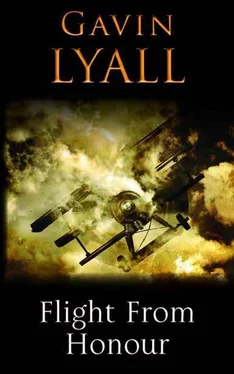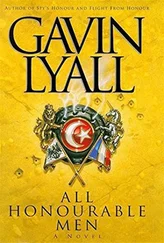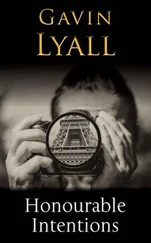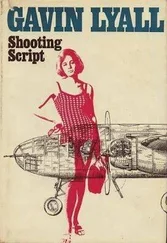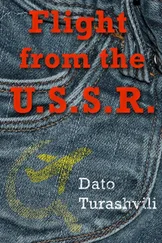Gavin Lyall - Flight From Honour
Здесь есть возможность читать онлайн «Gavin Lyall - Flight From Honour» весь текст электронной книги совершенно бесплатно (целиком полную версию без сокращений). В некоторых случаях можно слушать аудио, скачать через торрент в формате fb2 и присутствует краткое содержание. Год выпуска: 2013, Издательство: PFD Books, Жанр: Шпионский детектив, Исторический детектив, на английском языке. Описание произведения, (предисловие) а так же отзывы посетителей доступны на портале библиотеки ЛибКат.
- Название:Flight From Honour
- Автор:
- Издательство:PFD Books
- Жанр:
- Год:2013
- ISBN:нет данных
- Рейтинг книги:4 / 5. Голосов: 1
-
Избранное:Добавить в избранное
- Отзывы:
-
Ваша оценка:
- 80
- 1
- 2
- 3
- 4
- 5
Flight From Honour: краткое содержание, описание и аннотация
Предлагаем к чтению аннотацию, описание, краткое содержание или предисловие (зависит от того, что написал сам автор книги «Flight From Honour»). Если вы не нашли необходимую информацию о книге — напишите в комментариях, мы постараемся отыскать её.
Flight From Honour — читать онлайн бесплатно полную книгу (весь текст) целиком
Ниже представлен текст книги, разбитый по страницам. Система сохранения места последней прочитанной страницы, позволяет с удобством читать онлайн бесплатно книгу «Flight From Honour», без необходимости каждый раз заново искать на чём Вы остановились. Поставьте закладку, и сможете в любой момент перейти на страницу, на которой закончили чтение.
Интервал:
Закладка:
11
While Dagner escorted Sir Caspar out, Ranklin checked the room over for any papers that might have got left behind, and called down by voicepipe for someone to clear away the coffee tray. Then went upstairs.
Dagner was back at the littered work-table; he looked up with a thin smile. “What did you make of Sir Caspar?”
“Can’t say I followed everything he said,” Ranklin said tactfully. “But most seemed to be sound, if cynical, sense.”
“Quite. And he confirmed what I heard last night about the naval situation in the Med. Perhaps you gathered that it was a sort of reunion of old India hands? – we even got Lord Curzon to drop in . . .” Of course: Curzon had been Viceroy of India when Dagner had won his DSO, had probably pinned it on him. It must have been Curzon’s Rolls-Royce Ranklin had seen at the Tower last night. “They were quite cut up about it all.”
“Understandably,” Ranklin felt he should say.
“And it ties up with something Senator Falcone was telling me yesterday afternoon.” He pulled out his watch. “Would you care to hear about it over lunch downstairs?”
“Of course.” Ranklin hadn’t been sure he was going to hear what the Senator had said – nor that he really wanted to. The less he was involved in office strategies, apart from the training programme, the more free he’d be to get abroad again. Hiding O’Gilroy away down at Brooklands could only be a temporary measure.
The tables in the dark-panelled restaurant on the ground floor were widely spaced, and the lunchtime crowd had thinned out, so they were safe from being overheard. Even so, Dagner switched to Indian reminiscences whenever a waiter came near.
“How au fait are you with naval matters?” he began.
“A pure landlubber,” Ranklin said promptly. “As I say, we don’t usually touch on such things.”
“It all seems to begin seven years ago when we launched HMS Dreadnought, which made every other battleship in the world – our own included – out of date. Since then, everybody’s been building their own versions.” He shot his cuff and consulted some figures he’d pencilled on it. “We’ve now got eighteen, plus eight battle-cruisers which are faster but thinner-skinned. And of those, according to Whitaker’s – something anybody can look up – only three are in the Mediterranean. And the French, who are supposed to be guarding the Med, have only two dreadnoughts anywhere. Against that, the Italians already have four and the Austrians two and are building two more. So, on paper, we and the French are already outnumbered down there and it could soon be worse. Why are we happy with that? – I thought the Navy was there to protect our Empire and trade.”
Ranklin hadn’t seen Dagner so positive, almost aggressive, before. He just had time to murmur: “The German fleet in the North Sea . . .” before their soup arrived.
When they were alone again, Dagner said: “Quite. But the matter might be a little more urgent that most people suppose . . . Because what Senator Falcone came to tell our Foreign Office people was that, three months ago, the Italian Foreign Minister signed a secret treaty with Austria putting the Italian fleet under Austrian command in the event of a war. So we would be facing a unified fleet.”
Dagner’s quiet tone seemed aimed at understating this news and, by implication, emphasising it. So Ranklin put down his soup spoon and frowned. Then asked: “Has he any proof of this treaty?”
“That’s what the Foreign Office asked him – not too tactfully, I understand. No, he hasn’t. But he hopes to get a copy of the treaty before too long. Or so he says. So the FO suggested he come back when he’d got that. He then – mistakenly, I think – offered them a deal.”
Ranklin winced, imagining the sudden Ice Age that would have visited King Charles Street. One did not offer the British Foreign Office deals.
“Exactly,” Dagner smiled. “That’s why he turned to us.”
“He’d turned to us before he saw the FO. Though perhaps he guessed what sort of reception he’d get there.”
“I wouldn’t be surprised. He’s very much an Italian nationalist who hates the idea of subservience to Austria. I find that reassuring, that one can understand his motives.” He saw Ranklin’s dubious look and smiled. “No, Captain, I’m not making the mistake of thinking because we agree with the Senator on one thing, he must be really just an Englishman with a funny accent. I’m sure that, quite apart from his nationalism, his own political ambitions are mixed up in this. We’ll have to watch out for that-Did you ever hear about Hodson, the chap who actually set up Hodson’s Horse?” That was for the waiter taking away their soup plates. And he did it so quickly that Ranklin never got to hear about Hodson.
“Anyway,” Dagner resumed, “what he’s offering is to prompt a strike in the shipyard at Trieste that’s building most of the Austrian dreadnoughts.”
“Oh.” Ranklin couldn’t think how to react. “Er . . . just like that?”
“I didn’t ask how.” Dagner gave him a reproving look. “And I doubt I’d understand anyway: I know almost nothing about industry. But I think we must accept that he does; that’s how he made his money. And he claims strong family connections with Trieste – where most of the shipyard workers are also Italian. Building warships for Austria that could be used against Italy – one can see an inflammatory argument there. He also mentioned Oberdan – have you heard of him?”
Ranklin just shook his head, since the waiter was delivering their main course. He couldn’t remember what he’d ordered but it turned out to be the rump steak with oyster sauce. He felt he had to justify it by pointing out: “With one thing and another, I didn’t get any real dinner last night.”
Dagner nodded and consulted his cuff again. “I’ve verified Oberdan, at least. He was an Italian nationalist but citizen of Austria who got hanged by the authorities in Trieste back in 1882, at about this time of year. Apparently he’s become a martyr, a useful name to shout at riots. And that’s what the Senator hopes for: not just a strike but a riot with the workers destroying the shipyard machinery in an outburst of Luddism.”
“Sabotage,” Ranklin muttered, but not really listening to himself because he felt this was either an opium dream or very deep water.
“I beg your pardon?”
“Sorry. Sabotage. New slang from the French railway strike last year, when they tore up the sleepers, that the French call ‘sabots’. Wooden shoes.”
“Sabotage.” Dagner savoured the word. “Thank you. So, such things can happen.” He ate quietly for a while. Then: “I find that rather terrifying – even that such a word has appeared in our language. We talked of Secret Weapons the other day, but this could trump the lot.”
Ranklin had long believed that any talk of bloody-minded, bone-idle, money-grubbing civilian workers should be a banned in Army messes, so wasn’t going to get involved. Instead: “You said the Senator was offering a deal: what does he want from us?”
“Help with armaments. He’s not just interested in naval affairs, but in improving the Italian Army as well.”
“Money?”
“Oh no, no.”
“That’s usually all it takes. I don’t believe there are any restrictions on the export of arms.” He had wondered if Dagner, fresh from the Khyber Pass where selling even a rifle to a tribesman was probably a hanging offence, realised how easy the rest of the world found it to buy British battleships, French aeroplanes, German cannon, no matter who you were. All you needed was hard cash.
Читать дальшеИнтервал:
Закладка:
Похожие книги на «Flight From Honour»
Представляем Вашему вниманию похожие книги на «Flight From Honour» списком для выбора. Мы отобрали схожую по названию и смыслу литературу в надежде предоставить читателям больше вариантов отыскать новые, интересные, ещё непрочитанные произведения.
Обсуждение, отзывы о книге «Flight From Honour» и просто собственные мнения читателей. Оставьте ваши комментарии, напишите, что Вы думаете о произведении, его смысле или главных героях. Укажите что конкретно понравилось, а что нет, и почему Вы так считаете.
